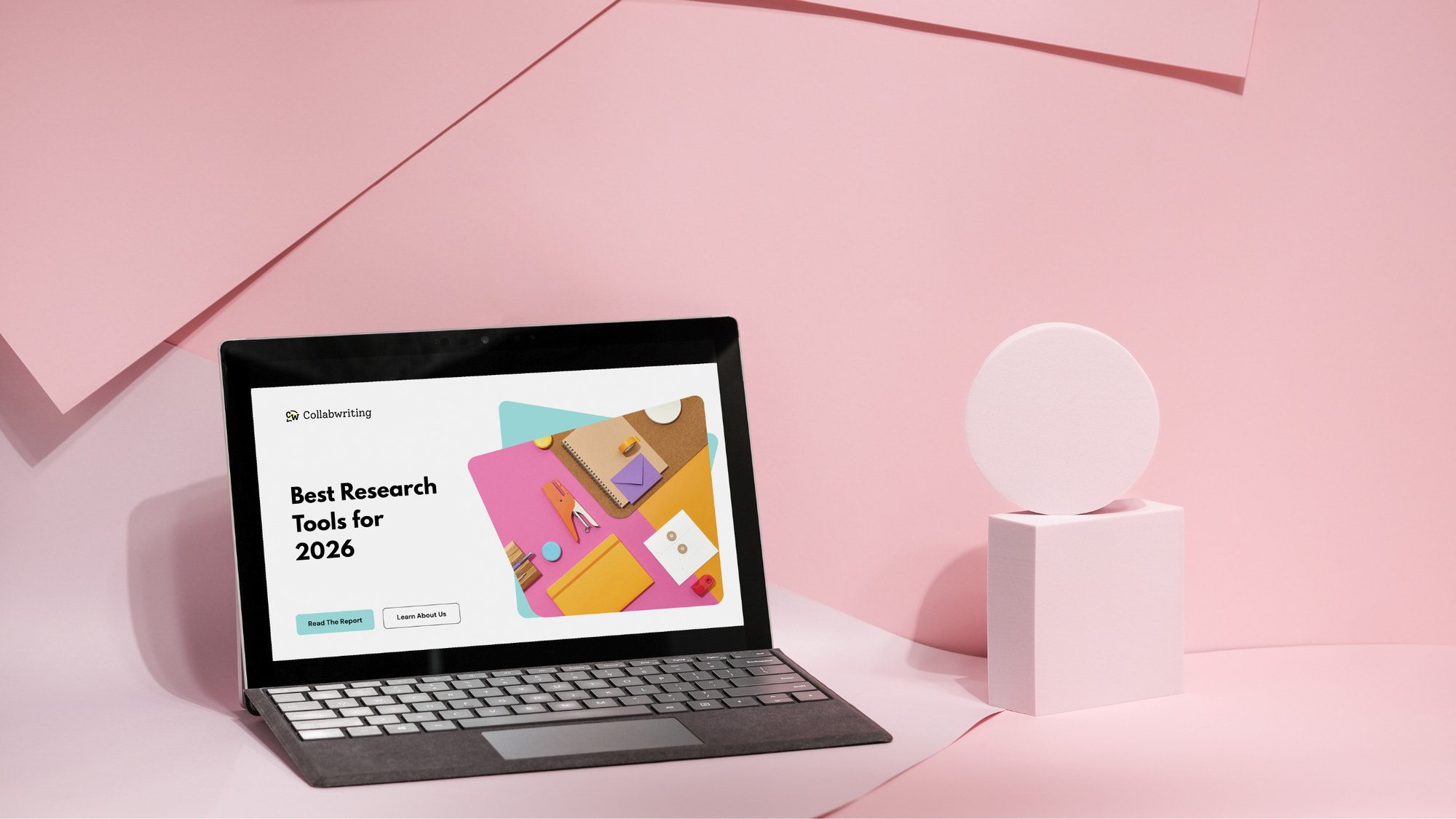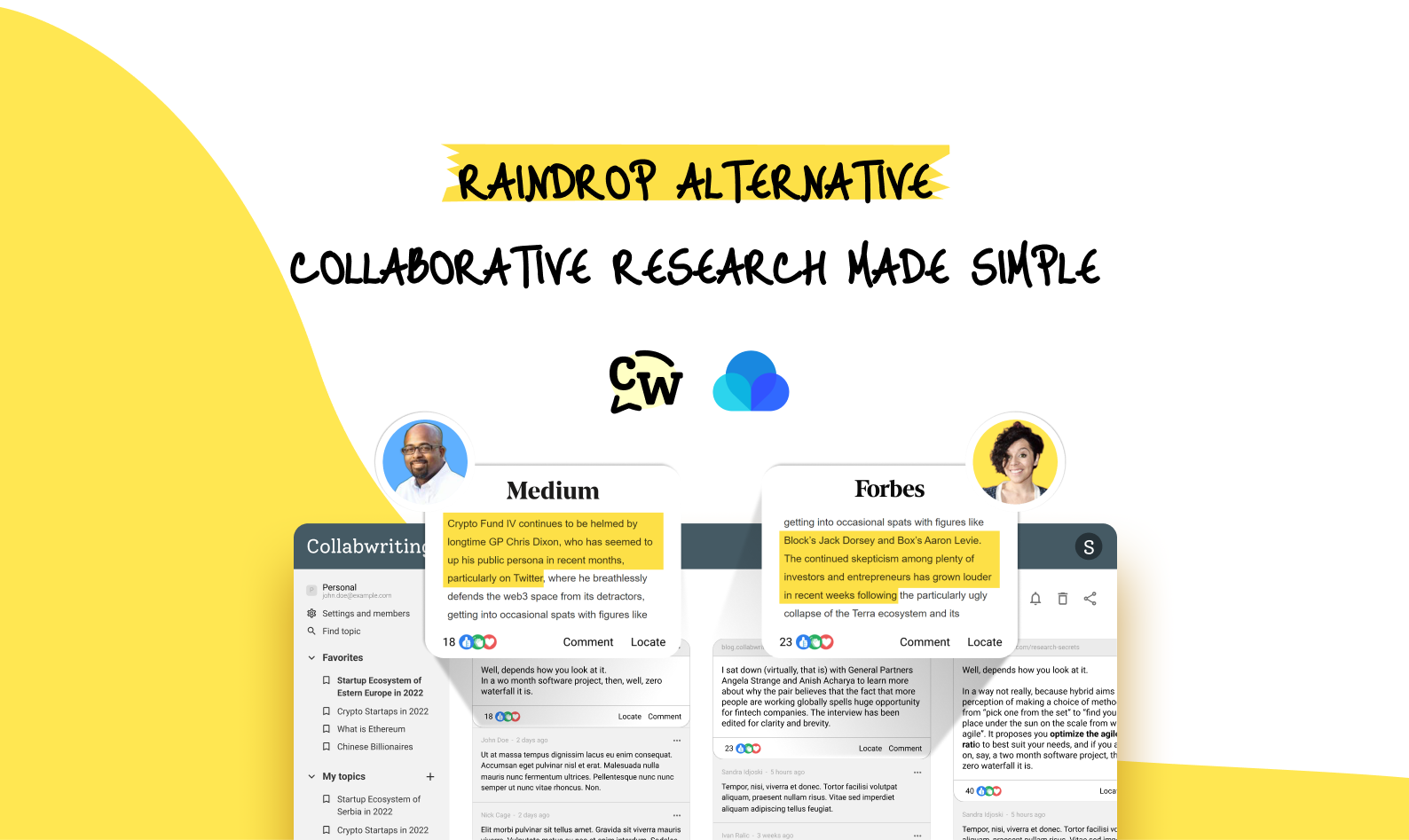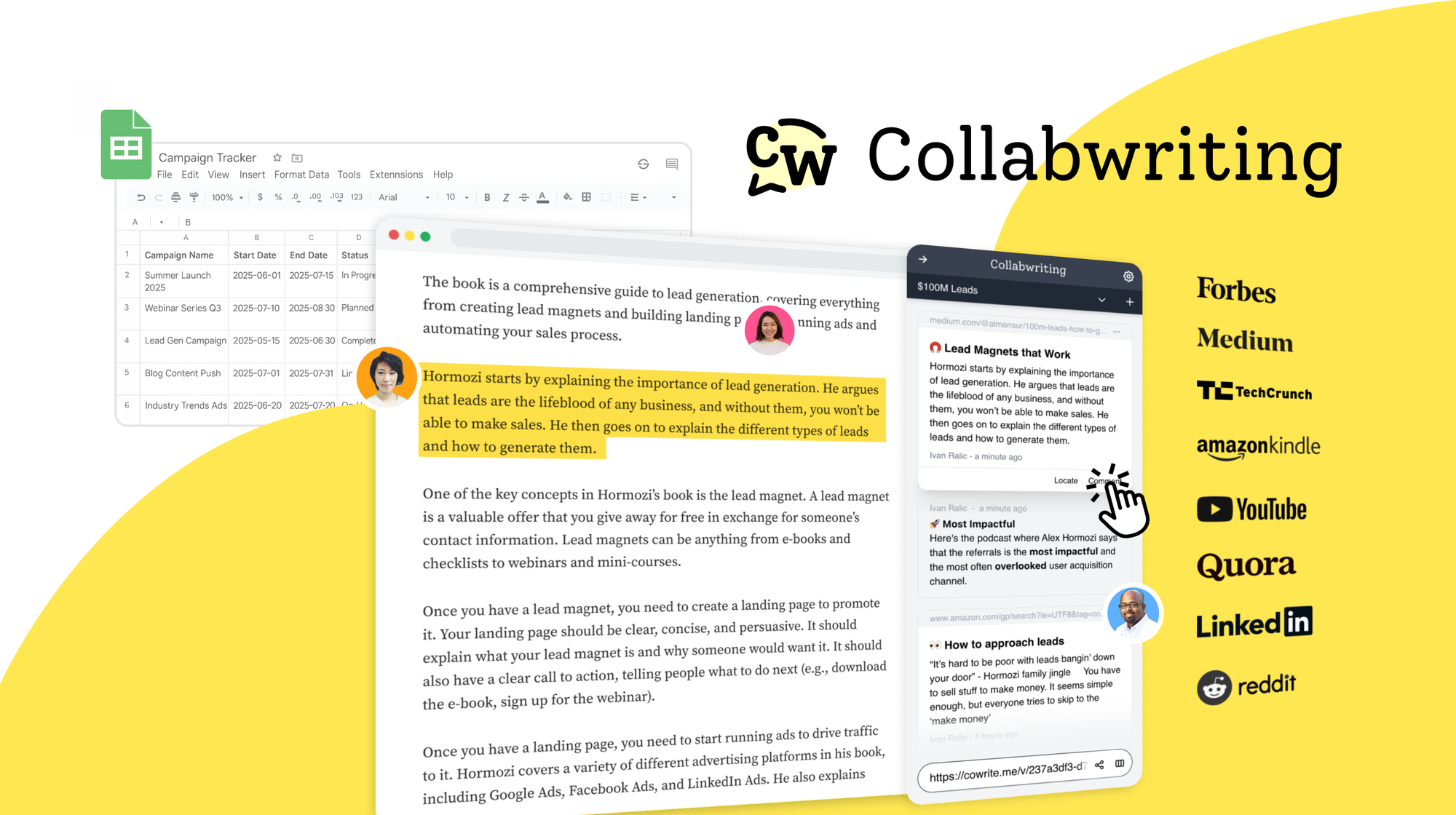With hybrid teams' emergence, traditional market research methods have evolved.
This article explores all the challenges this change has brought — and how you can leverage collaborative market research techniques to gain valuable insights into your target markets.
Understanding market research
Market research involves gathering and analyzing data about your customers' preferences and behaviors.
But why should this matter to you?
Because it provides the insights you need to tailor your products and services precisely to your customers' needs, enhancing your chances of success.
Get this: 80 percent of businesses conduct market research to gather insights.
In other words, if you don’t get on board, you’re likely to slip behind your competitors.
By understanding your market, you can make smarter decisions that directly contribute to business growth and profitability. This process is a must for developing strategies that truly connect with your target audience and drive meaningful engagement.
Market research is key in shaping your customer acquisition funnel. It clarifies the preferences and behaviors of your potential customers, enabling you to craft marketing strategies that attract and engage them effectively.
This strategic approach ensures that each stage of the funnel — from awareness to conversion — is finely tuned for maximum impact.
The challenges of hybrid market research
Now that we’ve covered the basics of market research, let’s dive into the hardships that come to light in a hybrid setting.
Communication barriers
If you’ve ever played a game of telephone, you know that when people are even a little geographically dispersed, effective communication can be tough.
Misunderstandings and delays in sharing critical information can affect the accuracy and timeliness of market research. Furthermore, remote communication often lacks the nuance of face-to-face interactions, which can lead to oversights and errors in interpreting data.
To mitigate these issues, implementing standardized communication tools and protocols is essential. Regular scheduled meetings and updates can also help ensure that everyone is on the same page, despite physical distances.
Data collection consistency
Ensuring that data is collected consistently by different team members in various locations can be difficult.
Variations in methods or misunderstandings about procedures can lead to skewed data, impacting the overall quality of insights. This inconsistency can distort the market analysis, leading to flawed strategic decisions.
Establishing clear, detailed guidelines for data collection and using centralized tools that all team members can access and update in real time are crucial steps toward ensuring consistency.
Time zone differences
Many of us are so busy in our day-to-day lives that we can hardly coordinate get-togethers with local friends and family — much less plan important meetings across multiple time zones.
Unfortunately, this can significantly slow down the process of gathering and analyzing market data. This delay can lead to missed opportunities if the data is not processed quickly enough, as market conditions can change rapidly.
To overcome this challenge, teams should be empowered to use both synchronous and asynchronous communication to best fit their needs at the moment.
Cultural divergence
Distributed teams might face challenges due to cultural differences that affect how market research is conducted and interpreted.
Cultural differences can influence consumer behavior and responses, making it a challenge to create a universally applicable strategy. Understanding these differences is essential for the accuracy of market insights.
Investing in cultural training and employing local experts can help bridge these gaps. These experts can provide valuable insights into local consumer behavior and preferences, enhancing the effectiveness of research efforts.
Technology dependence
Remote and hybrid teams of course rely heavily on technology for collaboration and data sharing. Any technical issues or limitations in software and tools can hinder the efficiency of market research efforts, affecting decision-making processes.
Dependence on technology also exposes teams to risks associated with data security and privacy. To address these challenges, it’s important to choose reliable and secure technology platforms. Regular training on new tools and updates can also ensure that all team members are capable of using technology effectively and securely.

Tips for conducting market research in a hybrid environment
As you can see, there are certainly challenges associated with conducting collaborative market research with hybrid teams. But that shouldn’t hold you back if your own team is distributed, or you’re thinking of moving in that direction.
Here are tips for conducting excellent market research, even when some of your team works remotely.
1. Utilize digital collaboration tools
Embrace digital tools that facilitate collaboration and communication among your team members, no matter where they are located.
We’re talking about software like Slack, Microsoft Teams, Zoom, etc. Any of these can help maintain a steady flow of communication. Use these tools for regular check-ins, brainstorming sessions, and real-time updates.
Additionally, platforms like Collabwriting or Google Workspace allow everyone to work on documents simultaneously, ensuring that all team members have access to the latest data and insights.
This real-time collaboration is essential for maintaining the continuity and pace of market research projects. To optimize these tools, consider regular training sessions to ensure all team members are proficient in using them.
This not only boosts efficiency but also ensures that technological hurdles do not hinder your market research efforts.
2. Establish clear communication protocols
Define clear communication protocols that specify:
- How information should be shared
- Who should be updated, and
- The frequency of these updates
Establishing a routine for daily or weekly meetings can help ensure that no one is left out of the loop, and all team members are aligned with the project goals.
Implement a centralized communication hub where all data, insights, and updates can be stored and easily accessed by team members. This could be a dedicated project management tool like Asana, Trello, or Monday.com, which helps keep track of tasks, deadlines, and responsibilities.
Regular audits of communication effectiveness can help identify and rectify any gaps in your strategy as you build out these practices.
3. Adapt research methods to remote settings
Traditional face-to-face research methods might not always be feasible in a hybrid setup. So you'll have to adapt your strategies to include online surveys, virtual focus groups, telephone interviews, and so on.
Utilize tools like SurveyMonkey for surveys, Zoom for virtual focus groups, and even social media platforms for engaging with and observing consumer behavior. These tools offer the flexibility to reach a wider and more diverse audience, which is often geographically scattered anyway.
4. Leverage data analytics tools
Invest in advanced data analytics tools that can help you process and analyze large volumes of data efficiently. Tools like Tableau, Google Analytics, and SAS provide powerful insights that can guide your market research analysis.
These tools can help identify trends, patterns, and consumer preferences that might not be apparent from raw data alone. They enable you to make data-driven decisions quickly and accurately, which is crucial in a fast-paced market environment. Enablement sessions around these tools will be crucial, as they often require specific skills to use effectively.
Consider regular workshops (online, of course!) or bringing in experts to ensure your team can leverage these analytics tools to their full potential.
5. Implement virtual whiteboarding
Virtual collaboration via digital whiteboarding can be a game-changer for brainstorming and visualizing data with your remote team.
Tools like Miro or Microsoft Whiteboard allow team members to contribute ideas and feedback in real time, no matter their location.
These sessions can help facilitate creative thinking and problem-solving, essential components of effective market research. They provide a visual aid that helps clarify complex data and insights, making it easier for the team to draw conclusions and formulate strategies.
6. Schedule regular feedback loops
Feedback is crucial in any market research process, but even more so in a remote setting where misunderstandings can occur more easily.
Establish regular intervals for feedback, where team members can review work, suggest improvements, and validate data. Use these feedback sessions to not only refine your market research outputs but also to enhance team cohesion and ensure everyone’s efforts are aligned with the project goals.
This practice encourages a continuous improvement mindset and helps identify potential issues before they escalate. Encourage an open and honest communication culture where feedback is seen as constructive. This can be facilitated through anonymous feedback tools or regular one-on-one check-ins.
7. Focus on security and data privacy
Conducting market research remotely increases the need for stringent security measures to protect sensitive data, especially when you consider that cyber attacks just keep growing in number.
Ensure that all data collection and storage platforms comply with relevant data protection regulations like GDPR or HIPAA, depending on your location and the nature of the data. Implement robust cybersecurity measures, including secure VPNs, encrypted communications, and regular security audits.
Educate your team on best practices for data privacy and security to prevent breaches. Regularly update your security protocols and keep your team informed about new threats and security practices.
This not only protects your data but also builds trust with your clients and research participants, ensuring that they feel confident about sharing information with you.
Final thoughts
All of this guidance should help you better conduct collaborative market research, even when doing so with a distributed team.
Remember, the market research process differs from company to company and project to project. The more experience you gain the easier it becomes to implement a process to help you obtain the data you’re seeking.
Author: Chris Bibey is a full-time freelance writer with 15+ years of experience in the field. In his spare time, he runs a newsletter that helps other writers secure more business.





![The Best Tool for Collaborative Research in Content Marketing Teams [2026]](/content/images/2025/12/image--5-.png)


![5 Tools Marketers Use to Organize Research - Compared [2026]](/content/images/2025/11/cover-4-1.png)

![Build Credibility in Research: Smart Way to Verify Information and Track Sources Easily [2025]](/content/images/2025/10/covers-for-blog--7--1.png)

![How Marketers Can Turn LinkedIn Content into Collaborative Research [2025]](/content/images/2025/10/covers-for-blog--8-.png)
![Best Readwise Alternative for Personal & Team Research [2026]](/content/images/2025/09/Frame-814--3-.png)

